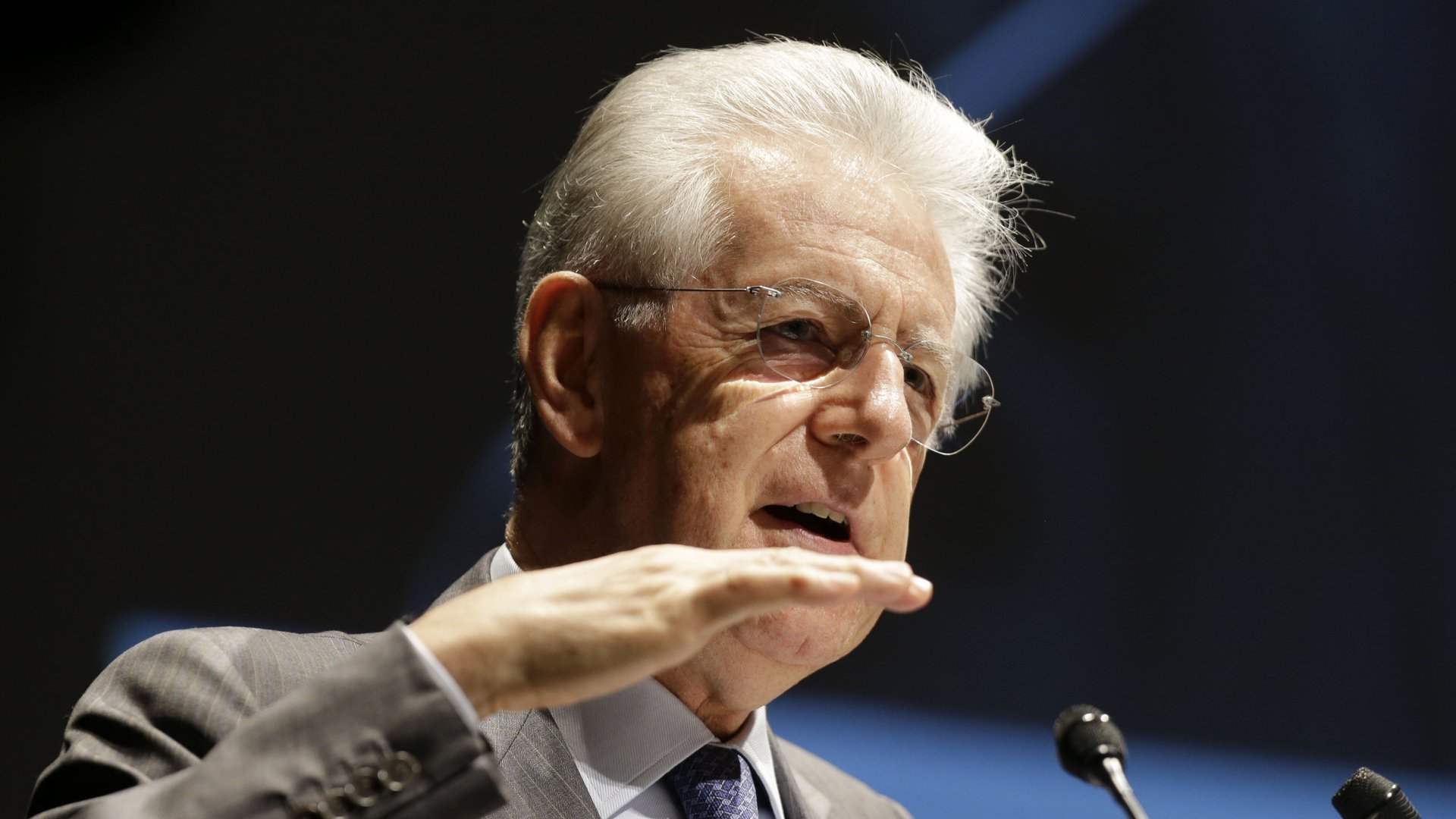Monti extends a surprise tax break to lowest earners. Is he getting soft or political?
Mr. Austerity, Italian Prime Minister Mario Monti, has given his country an anti-austerity surprise: a percentage-point tax cut for the country’s lowest earners. “We can allow ourselves some moderate relief,” Monti said in announcing the move.


Mr. Austerity, Italian Prime Minister Mario Monti, has given his country an anti-austerity surprise: a percentage-point tax cut for the country’s lowest earners. “We can allow ourselves some moderate relief,” Monti said in announcing the move.
People earning less than €15,000 a year will see a rate drop to 22% from 23%, while those earning between €15,001 and €28,000 will pay 26% instead of 27%. Three higher brackets won’t change.
The tax breaks are a first for Monti, who since taking office last November has been anything but charitable. He’s imposed tough austerity measures on his country, including tax hikes, pension and healthcare cuts, and slashed government spending—all to stave off a crisis of Greek proportions.
The situation in Italy remains fragile. The country has €1.9 trillion in debt, the second highest load in the euro zone, and the world’s fourth. Monti’s critics says his severe austerity policies have driven Italy deeper into recession. Just yesterday, a senior Italian Treasury official said that the deepening recession meant Italy must sell €20 billion more in bonds and bills than previously planned. This followed a government growth revision, saying the economy would shrink by 2.4%, twice as much as originally forecast, and deficit and debt estimates would be revised upward.
Meanwhile, industrial production has slowed—though numbers today showed the slowdown in August was less than expected—while capital flight remains a chief concern. An International Monetary Fund report just out says that more than €235 billion left Italian banks in the year to June 2012.
There have been encouraging signs. Borrowing costs have slipped lower recently in part on news that Monti would lead again if asked, and also from pledges by Mario Draghi of the European Central Bank to buy bonds from troubled economies like Italy’s.
Today’s tax cuts could be to cushion the blow, as more austerity measures are on their way. Along with the tax cuts, Monti announced a 1% rise on value added tax, fresh spending cuts, and a financial transactions tax, among other things. He said the country would stick to the budget goals agreed with European officials, meaning a balanced budget in structural terms by next year. A bone to the country’s lowest earners could be a way of keeping them from violently rioting in the streets like in Greece.
He could be growing soft–or political. Until recently, Monti said he wouldn’t lead beyond next year’s parliamentary elections. Now he says he will, if asked.